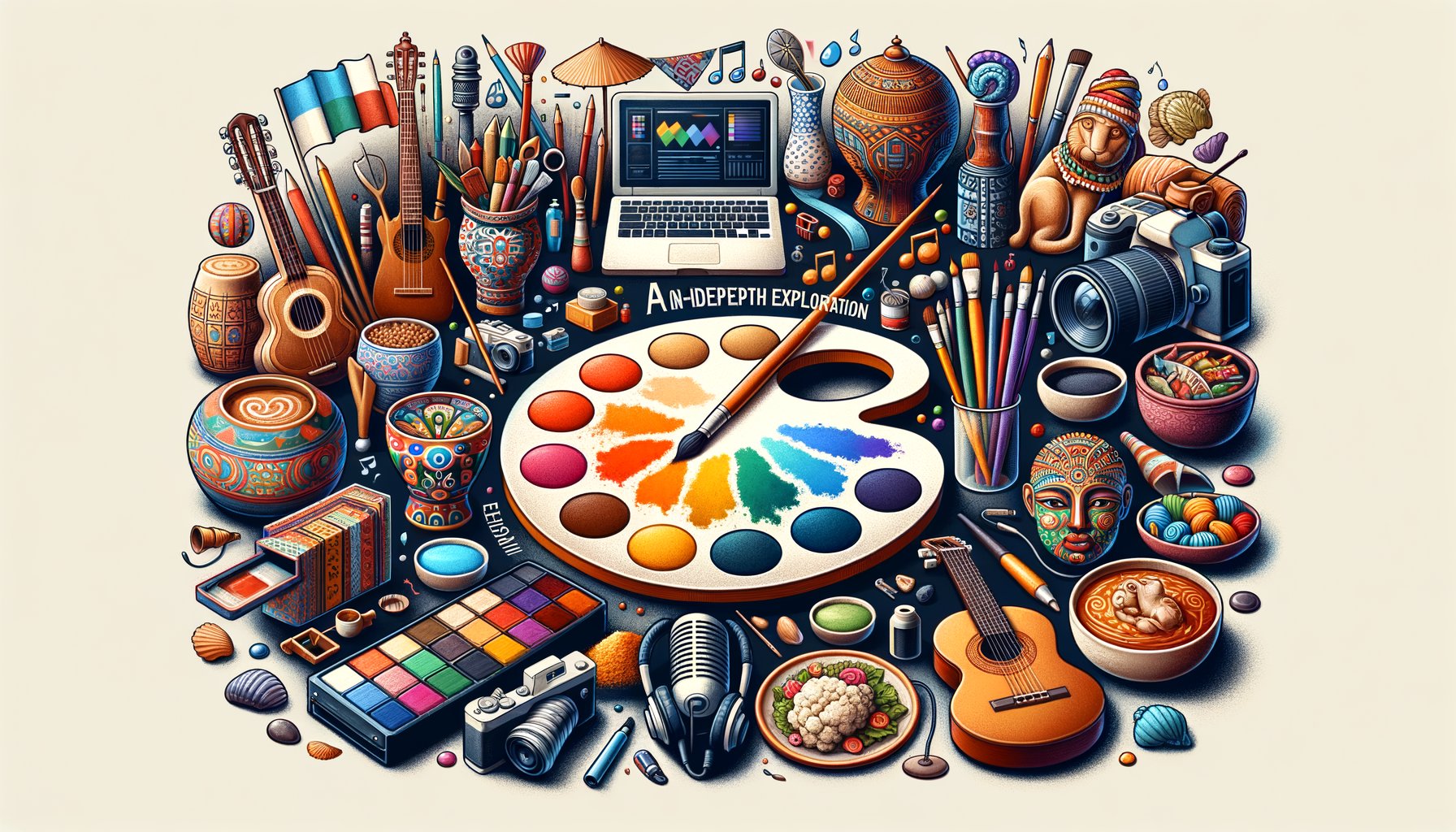Physical Address
304 North Cardinal St.
Dorchester Center, MA 02124
Physical Address
304 North Cardinal St.
Dorchester Center, MA 02124

Art and culture are the invisible threads that bind humanity together. They are the soul of a society, reflecting its values, history, and hopes for the future. But what role do they play in our modern world? This article delves into this intricate tapestry, exploring how art and culture influence our lives today.
Art is more than just a display of creativity; it is a powerful tool for communication. It transcends language barriers, expressing emotions and ideas that words sometimes fail to capture. In today’s globalised world, art serves as an international language that fosters understanding among diverse cultures.
Moreover, art can be a catalyst for social change. From street murals highlighting social issues to films challenging societal norms, art allows us to question existing structures and envision new possibilities. It encourages critical thinking – a vital skill in our rapidly changing world.
In the digital age, art has evolved beyond traditional mediums like painting or sculpture. Digital art – encompassing everything from graphic design to virtual reality experiences – has become increasingly prevalent. These new forms of artistic expression reflect our technologically driven society while also challenging us to redefine what we consider ‘art’.
Furthermore, the internet has democratised access to art. Online galleries and social media platforms allow artists worldwide to showcase their work to a global audience – an opportunity previously reserved for a select few.
Culture is an integral part of human existence. It shapes our identity by defining shared beliefs, practices, and values within a community or society. Culture influences every aspect of life – from food habits to political views – thereby shaping societies’ collective mindset.
In today’s multicultural world, understanding different cultures is crucial. It fosters empathy and tolerance, allowing us to appreciate the diversity that enriches our global community. Moreover, it helps us understand the complex socio-political dynamics that shape global events.
Globalisation has brought cultures closer than ever before. We are now exposed to a diverse range of cultural practices and ideas through travel, media, and the internet. This cultural exchange can inspire innovation and progress, as we learn from each other’s experiences.
However, there’s also a risk of cultural homogenisation due to dominant cultures overshadowing others. Preserving cultural diversity is therefore vital for maintaining the rich tapestry of human experience.
Art and culture play an essential role in education by fostering creativity, critical thinking, and intercultural understanding – skills necessary for today’s interconnected world. Incorporating art and culture into education can make learning more engaging and meaningful for students.
Moreover, research suggests that exposure to art can improve cognitive abilities, emotional intelligence, and academic performance. Similarly, understanding different cultures can broaden students’ perspectives – preparing them to navigate our diverse world effectively.
The economic impact of art and culture is often overlooked but they play a significant role in driving economic growth. The creative industries – encompassing everything from film production to fashion design – contribute significantly to economies worldwide.
Furthermore, art and culture attract tourism – a major source of revenue for many countries. They also increase property values in areas with vibrant arts scenes or rich cultural heritage.
In conclusion,
Artists themselves also contribute economically through their work – creating jobs while also enhancing social wellbeing through their creations.
Art and culture are not mere luxuries; they are fundamental aspects of human society that influence our lives in myriad ways. They communicate, inspire, educate, and even drive economic growth. In our increasingly globalised and digital world, understanding their role is more important than ever.
As we navigate the complexities of the 21st century, let us remember to appreciate and preserve the art and culture that enrich our lives – reminding us of our shared humanity amidst our diverse experiences.